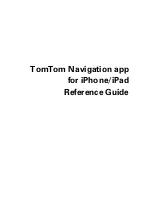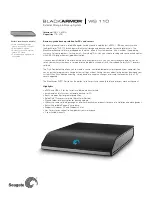
S e n d c o m m e n t s t o n x 5 0 0 0 - d o c f e e d b a c k @ c i s c o . c o m
6-28
Cisco Nexus 5000 Series Command Reference
OL-16599-01
Chapter 6 Security Commands
deny (IPv6)
log
(Optional) Specifies that the device generates an informational logging
message about each packet that matches the rule. The message includes the
following information:
•
ACL name
•
Whether the packet was permitted or denied
•
Whether the protocol was TCP, UDP, ICMP or a number
•
Source and destination addresses and, if applicable, source and
destination port numbers
time-range
time-range-name
(Optional) Specifies the time range that applies to this rule. You can
configure a time range by using the
time-range
command.
icmp-message
(ICMP only: Optional) ICMPv6 message type that the rule matches. This
argument can be an integer from 0 to 255 or one of the keywords listed under
“ICMPv6 Message Types” in the “Usage Guidelines” section.
operator
port
[
port
]
(Optional; TCP, UDP, and SCTP only) Rule matches only packets that are
from a source port or sent to a destination port that satisfies the conditions
of the
operator
and
port
arguments. Whether these arguments apply to a
source port or a destination port depends upon whether you specify them
after the
source
argument or after the
destination
argument.
The
port
argument can be the name or the number of a TCP or UDP port.
Valid numbers are integers from 0 to 65535. For listings of valid port names,
see “TCP Port Names” and “UDP Port Names” in the “Usage Guidelines”
section.
A second
port
argument is required only when the
operator
argument is a
range.
The
operator
argument must be one of the following keywords:
•
eq
—Matches only if the port in the packet is equal to the
port
argument.
•
gt
—Matches only if the port in the packet is greater than the
port
argument.
•
lt
—Matches only if the port in the packet is less than the
port
argument.
•
neq
—Matches only if the port in the packet is not equal to the
port
argument.
•
range
—Requires two
port
arguments and matches only if the port in the
packet is equal to or greater than the first
port
argument and equal to or
less than the second
port
argument.
portgroup
portgroup
(Optional; TCP, UDP, and SCTP only) Specifies that the rule matches only
packets that are from a source port or to a destination port that is a member
of the IP port-group object specified by the
portgroup
argument. Whether the
port-group object applies to a source port or a destination port depends upon
whether you specify it after the
source
argument or after the
destination
argument.
Use the
object-group ip port
command to create and change IP port-group
objects.
















































